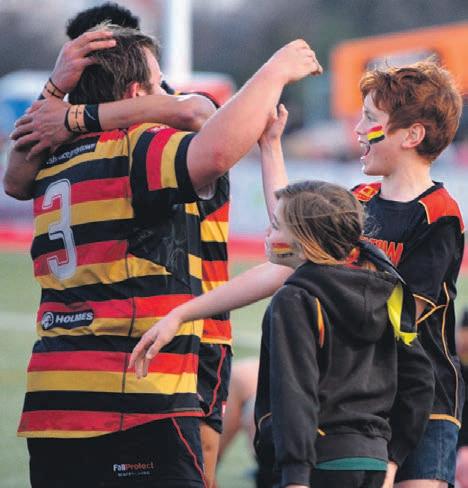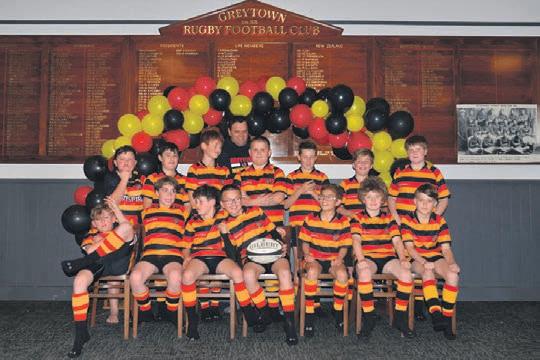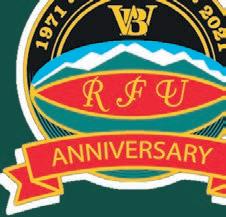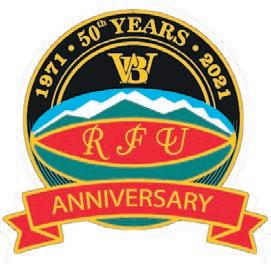
1 minute read
SEVEN DECADES OF GREYTOWN RUGBY




Rob “Spike” Saxton’s association with Greytown Rugby Club goes all the way back to the late 1940s.
“They were called the midgets back then. I was six or seven. went right through to the seniors till around 1965 or 1966 as a loose forward.
of it’s strengths.” season and set to make a big impact.
Spike has been on the committee of the club, its vice president, and his two sons played for it.
“Mark Childs will again be at the coaching helm, this year ° anked by forwards coach Jon Tanner.
“Laury Matthews and

Brady Bingham will again be running the cutter for the Reserves team and will be looking to be a real contender in that grade.
Like every club, Greytown has its battles, Tavita says, “but we are very fortunate to have an amazing committee navigate our club.
“As a club we promote whanau ora - belonging and team work. We have a rich history and our clubroom walls are decorated with the names and pictures of individuals and teams that have paved the way to the successes of our club.”
“But I kept on having injuries which is when I stopped. was spending more time on the sidelines than on the paddock so I thought there was a message there that my playing days were over.
“Back in those days there was no tv and pretty well everyone played some sort of sport,” Spike remembers.
Greytown has always been a strong club. It’s never gone into receivership. It’s always been a family club like most small town clubs are, with good people behind it. It has good people running the club now. That’s one
Greytown has had a very good last decade, always making the semi-ÿ nal, ÿ nals, and being winners of the Premier division, last year going through the season unbeaten.
Spike believes the loyalty of the club’s players has had a lot to do with its success.
“Most players stick with the club if they started with it, unless they move outside the Wairarapa, and we have quite a few players from other parts of the Wairarapa.
“The club also has a good supporter base with good turn outs for matches.”
For Spike, the club is an important part of his life.
“I’m there for rugby in the winter, and cricket in the summer.”








